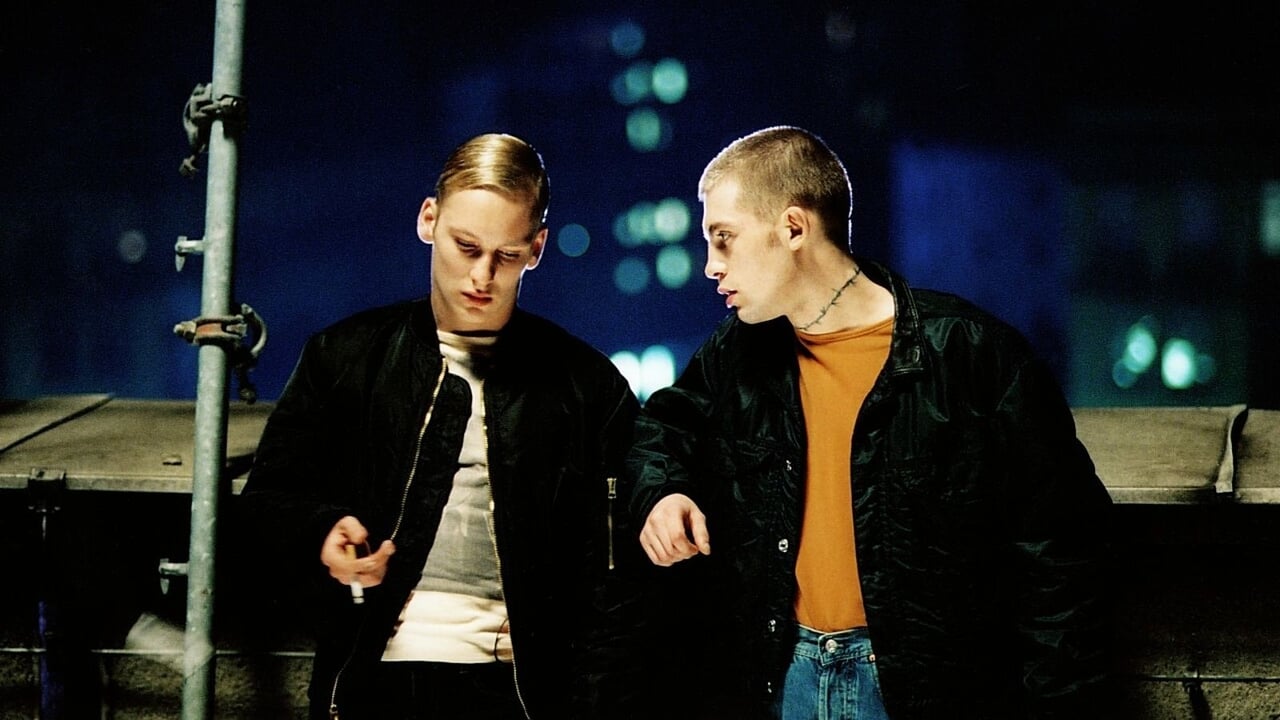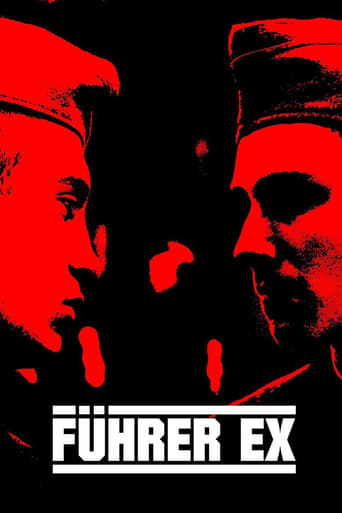

I like the storyline of this show,it attract me so much
... View MoreA very feeble attempt at affirmatie action
... View Morea film so unique, intoxicating and bizarre that it not only demands another viewing, but is also forgivable as a satirical comedy where the jokes eventually take the back seat.
... View MoreExactly the movie you think it is, but not the movie you want it to be.
... View MoreThis is a well acted BUT not convincing tale of two late teen lads in East Berlin in 1986,there eventual arrest for trying to escape to the west,there time in prison and how they change, & the eventual tragic ending after the wall comes down in 1989.This should have been a much better movie, but sorry to say it is not.I for one have seen many (maybe too many) prison films with troubled youths in them. A few years back we had American HISTORY X which was far superior on every count. HBO had a 5 year program called OZ, where we had nearly the same type of story & people. It too was far superior. Even going much further back there haver been similar type storiesAnother problem I had was the editing,some changes in scenes were not very clear,maybe it was because we did not know who the various people were.The subtitles are clear & easy to read,ratings: **1/2 (out of 4) 69 points (out of 100) IMDb 6 (out of 10)
... View MoreFührer Ex is a challenging, harsh, and intensely involving tale of the course of friendship of two young lads living in the 'prison' of Communist East Germany in 1986. Based on fact (Ingo Hasselbach's book 'Die Abrechnng' adapted for the screen by Douglas Graham and director Winfried Bonengel), this story relates the changes that occur in the close friendship of two boys torn by the confinement of the East German Communists vs the Western freedom of West Germany and the countries not under Communist control. It informs us about that transition with the fall of the Berlin wall and the subsequent adjustment to the new form of life East Germans found beyond the crumbled wall.Heiko (Christian Blümel) is fair-haired, virginal, nice guy who longs for adventure (and more) with his idolized friend Tommy (Aaron Hildebrand), an edgy guy unafraid to get into a bit of trouble (Tommy is arrested for a minor crime and is released from jail shaved and tattooed). The two dream of escaping their rigid lives and fleeing to Australia. Tommy talks Heiko into running the risk of actual escape and together they break through the wires and walls that confine them but are apprehended in their attempt and sentenced to prison in a cruel Communist prison where they are separated, Tommy joining a 'neo-nazi' group and Heiko falling under the 'protection' of a fellow prisoner who eventually rapes him. The two finally are able to talk and plan a mutual escape, hopefully placing themselves in boxes to be transported to freedom. Tommy succeeds; Heiko doesn't and remains in prison.Flash forward to 1989 and the Berlin wall is down. Tommy is living a comfortable life in the new Berlin and encounters Heiko in a true Neo-Nazi meeting that Heiko is leading. The tables have turned - Heiko is the miscreant and Tommy is the good guy. Convinced that Tommy is a traitor to the ideals of Heiko's political interests, Heiko surfaces all of the hate that brewed in prison and is focused on unjust governments. An event occurs that alters their friendship and Heiko is forced to see that varying political climes and convictions pale in the value of treasured friends.The film is well paced and the acting is excellent. There are gaps in the script storyline that result in some confusion for the viewer, but the overall impact of the 'biopic' nature of the movie is powerful and deserves attention. It is particularly fitting that this film comes out of Germany, as though it may be a purging of sorts over the initial division of East vs West Berlin. And forgetting about the political aspects of the story, this is a powerful document on the importance of commitment to long-term friends. Recommended. Grady Harp
... View MoreThis may be an unfair comparison, but take the elements of male friendships and self- discovery from Trainspotting and add the pacing, violence, frustrations, and relationships from Romper Stomper, and you'll get a feel for what this excellent film is like visually and sensually. A worthy round of applause to Director Bonengel and Actors Blumel and Hildebrandt and crew. Especially noteworthy, from an American perspective, is how powerfully and unapologetically the frontal nudity scenes were done in the prison. (American directors and film stars are cowards in comparison when addressing themes of such violence, sexuality, pain and need.) The directing, filming, lighting, acting and editing perfectly highlight the powerful aggressiveness and absolute vulnerability of the characters in a way that does not betray the craftsmanship that went into the production. Kudos to the entire team of Fuhrer Ex. The film is emotionally charged: uncomfortable, painful, tender, funny, and exciting. Highly-recommended.
... View Moredefinitly the worst film i've seen in years. don't be impressed by the subject of the film. the audience at the preview was either in hysterics on the floor from the incredible bad acting, or they left beforehand in disgust at the shabby treatment of the story. imagine one of the best stories you ever heard - in this case a true story - and now imagine the worst tv treatment - then you're not halfway there. the worst acting, boring, totally unrealistic (how did they manage to do that i don't know), unbearable dialogs...i could go on. i beg you not to see it. it's an offense to any thinking person, and totally gives a wrong image of what and how east berlin really was. the saving grace is one of the leading actor he deserves better and is - hopefully - a star in the making, and no it's not the blonde...:-)
... View More